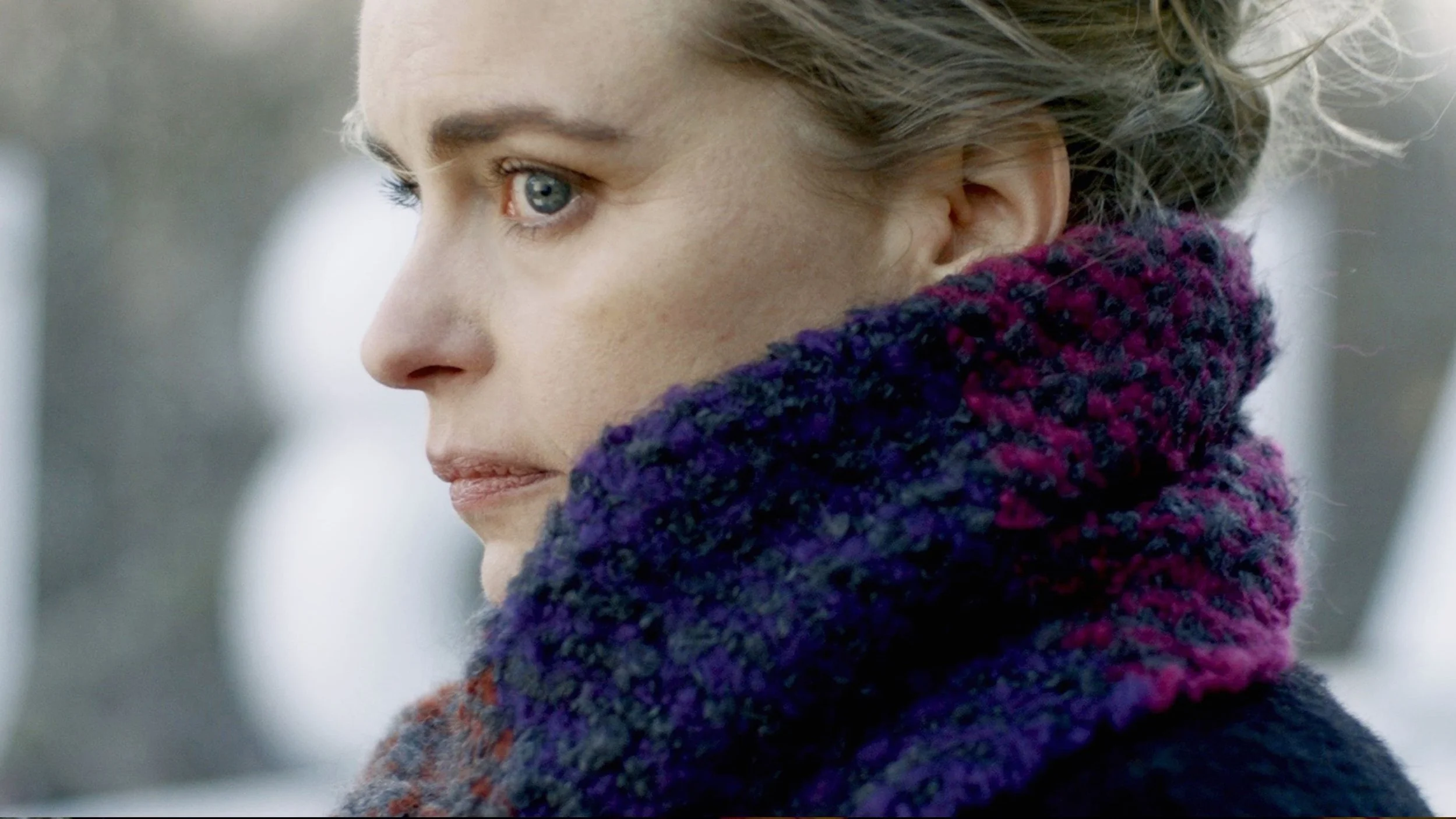My Little Sister
Germany’s eminent Nina Hoss shines in an intriguing Swiss drama about the close bond between twins.
Nina Hoss
The impressive opening scenes of this Swiss feature film made by Stéphanie Chuat and Véronique Reymond suggest that its title is entirely apt. They introduce us to the siblings Lisa (Nina Hoss) and Sven (Lars Eidinger) and, without the need to rely on dialogue at this stage, the film conveys fully the close bond between them. As it happens, Sven, an actor, has been diagnosed with cancer and Lisa has just stepped in as donor for a bone marrow transplant. But it is not only this which marks the depth of their connection: they are not just siblings but twins with Sven having been born just two minutes before his little sister.
Other films have placed a sibling relationship at their centre but not many focus on a brother and sister who are twins and for whom their bond is the strongest relationship that they have. That is the situation here even though Lisa does indeed have a life of her own. She is married to a teacher, Martin (Jens Albinus), whose work has taken him and the family (they have two young children) away from Berlin to Switzerland where Martin has a contract as headmaster of an elitist international school. Meanwhile, Sven is established as a leading figure on the Berlin stage and had been about to appear as Hamlet when he received his diagnosis. His illness now threatens this planned production leaving the director (Thomas Ostermeier) uncertain whether to yield to Sven’s hopes that he will be strong enough to appear or instead to grasp the nettle and announce the cancellation of the staging. Following the transplant, Sven seeks to recover his strength by staying at the home of Lisa and Martin in Switzerland but, while he keeps going by persuading himself that the production will happen, those around him have no such expectation yet are unwilling to dash his spirits by admitting it.
It is a great strength of My Little Sister that the lead performances are so secure: Nina Hoss, always highly reliable, is on her very best form and Lars Eidinger convincingly shows us a man whose health is in crisis (there is here no trace of that fictional cliché whereby a central character has a fatal illness but shows hardly any sign of it). These qualities make for an interesting film, but unfortunately it’s one in which the screenplay is not without problems.
The most interesting aspect in this tale is the relationship between the twins. My Little Sister really does capture the sense that their connection means more to Lisa than her life as a wife and mother. There’s no sense whatever of any erotic element in their closeness so this is in no way akin to the 1949 Cocteau classic Les Enfants Terribles (indeed this is totally avoided by making Sven gay). But that approach ensures that the film is all the more intriguing as a study of how much twinship can mean in its own right. Because the film’s early scenes express this so effectively they are the best in the film, but it does leave this aspect of the story short on development. Furthermore, as the piece proceeds it becomes more and more centred on the impact of cancer as a theme in itself which is something that we have seen before. Nor does it help that there is a third plot-line involved in My Little Sister. This shows how Lisa’s marriage is threatened by the fact that Martin without adequately consulting her puts his career first and commits to an extension of his contract in Switzerland when she has been set on returning to Berlin. This is convincingly depicted but, rather than cohering with the other elements, it makes one feel that the film is moving around uneasily between its three themes. By the later stages the film’s initial focus on being a twin, which had seemed so promisingly original, has lost its primacy and we are left with an extremely well-acted work which, worth seeing for that, ultimately adds up to less than one had hoped.
Original title: Schwesterlein.
MANSEL STIMPSON
Cast: Nina Hoss, Lars Eidinger, Jens Albinus, Marthe Keller, Thomas Ostermeier, Linne-Lu Lungershausen, Noah Tscharland, Moritz Gottwald, Isabelle Caillat, Leili Yahr, Jenny König, Urs Jucker.
Dir Stéphanie Chuat and Véronique Reymond, Pro Ruth Waldburger, Screenplay Stéphanie Chuat and Véronique Reymond, Ph Filip Zumbrunn, Pro Des Marie-Claude Lang-Brenguier, Ed Myriam Rachmuth, Music Christian Garcia, Costumes Anne Van Brée.
Vega Film/RTS Radio Télévision Suisse-606 Distribution.
96 mins. Switzerland. 2020. Rel: 8 October 2021. Cert. 15.


